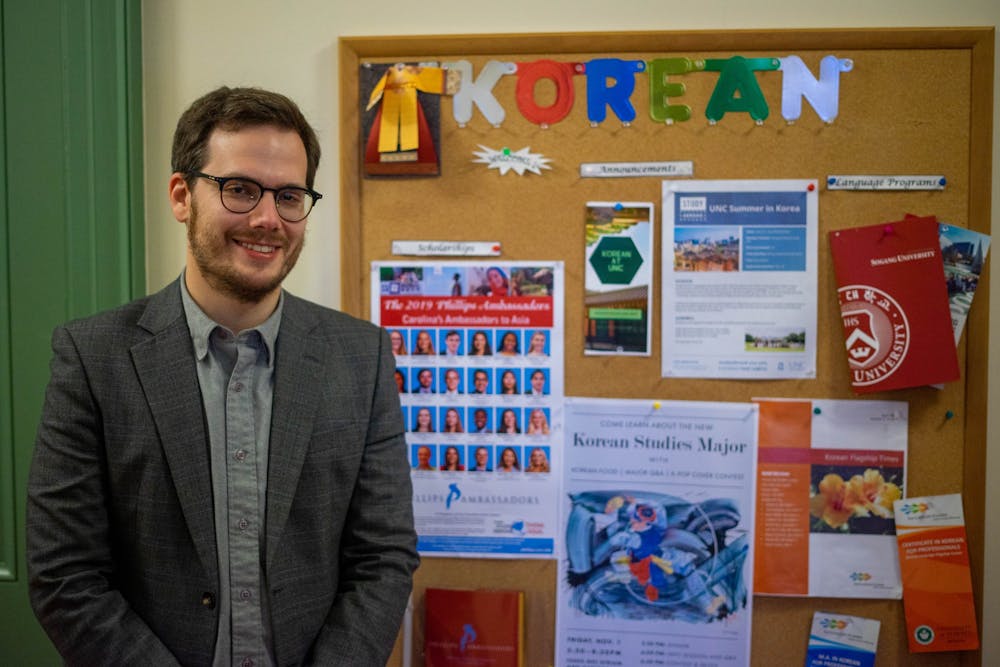UNC undergraduates can now officially major in Korean studies.
The addition of the major to the Asian studies curriculum comes after many years of Korean language and culture courses being offered.
“We just started the major this year,” I Jonathan Kief, a professor of Korean said. “I believe we have eight students declared at the moment, which is exciting for our first year. In terms of our program as a whole, last academic year we had about 375 students enrolled in our classes – that’s both language and content courses. That’s really a rapid expansion.”
Kief said the Korean studies classes in the Department of Asian Studies began in 2006, with only 23 students enrolled in first-year Korean for the first semester. The program then grew to include a minor.
He said the language’s growth at UNC has been driven by student interest.
“We’ve had constantly expanding student interest in especially Korean language classes, but also Korean studies classes, including classes in Korean literature, culture, history, film, etc.,” Kief said.
The increasing popularity of Korean culture in the United States, such as K-pop and Korean dramas, are some of the reasons behind the increase in interest, Kief said.
“One of the things that we try to do is help students take a certain entry point into thinking about Korea and its history and culture, and help them try to diversify their interests,” Kief said. ”Hopefully we can take their passion that they have for whatever that entry point was and refract it in multiple directions.”
Kaitlyn Turner and Muziah Kargbo are seniors who recently upgraded their Korean studies minors to majors.



